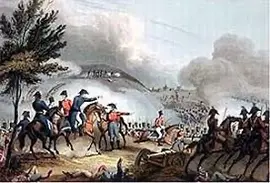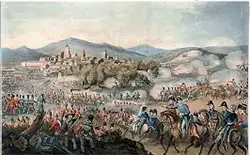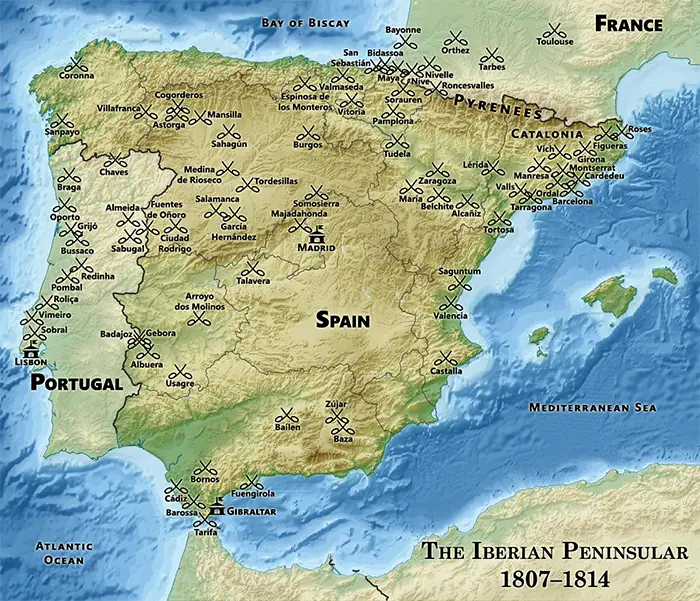The Peninsular War
Part 3: Throwing Off the Invaders A change in leadership, from Masséna to Auguste de Marmont, brought no new success for France. Throughout 1811 and 1812, the allied force gained more and more ground. As French forces continued to be pinned down defending against guerrilla attacks all over the country, Wellington and his troops were relatively free to move relentlessly on. At the height of occupation, France had committed 300,000 troops to the effort to control Portugal and Spain. Because of the fierceness of the opposition within Spain, however, the French were able to count on only about one-quarter of that occupation force to do battle with England and Portugal at any one time. Even so, at the end of 1811, French troops occupied the vast majority of Spanish territory. 
Wellington went on the offensive in 1812, entering Spain at the head of an allied army and seizing the strongholds of Ciudad Rodrigo (in January) and Badajoz (in April). In July, the allies defeated the French at the Battle of Salamanca. A month later, Wellington seized Madrid. Napoleon had invaded Russia in the summer of 1812, and that invasion had not been successful. The bulk of that invasion force did not make it back to French-friendly territory; those who did were needed to help with the fight against the Sixth Coalition, which Prussia had joined by this time. Soult and his French troops in Spain could definitely not depend on any reinforcements, whereas Wellington kept on getting new recruits, even as his country was also at war with the United States. 
The English and Portuguese moved north, defeating the French under Marshal Jean-Baptiste Jourdan at Vitoria in June 1813 (resulting in Joseph Bonaparte's renouncing the crown and fleeing the country), and again at Sorauren in July. Wellington and his force crossed into France in October and carried on their winning ways, even as Napoleon was losing battles in the east. The allied victory at Leipzig in October was particularly significant. As a result, the French emperor recalled troops from Spain. The invaders won another victory at Orthez in February 1814 and entered Paris the following month. A last-ditch attempt at defense failed, on April 10, near Toulouse. Napoleon abdicated two days later, and the Peninsular War was officially over. The Spanish crown prince, who had been a French captive, returned and became King Ferdinand VII. In the meantime, the people of Spain had created a Constitution.  First page > One Conflict Begets Another > Page 1, 2, 3 |
|
Social Studies for Kids
copyright 2002–2024
David White




